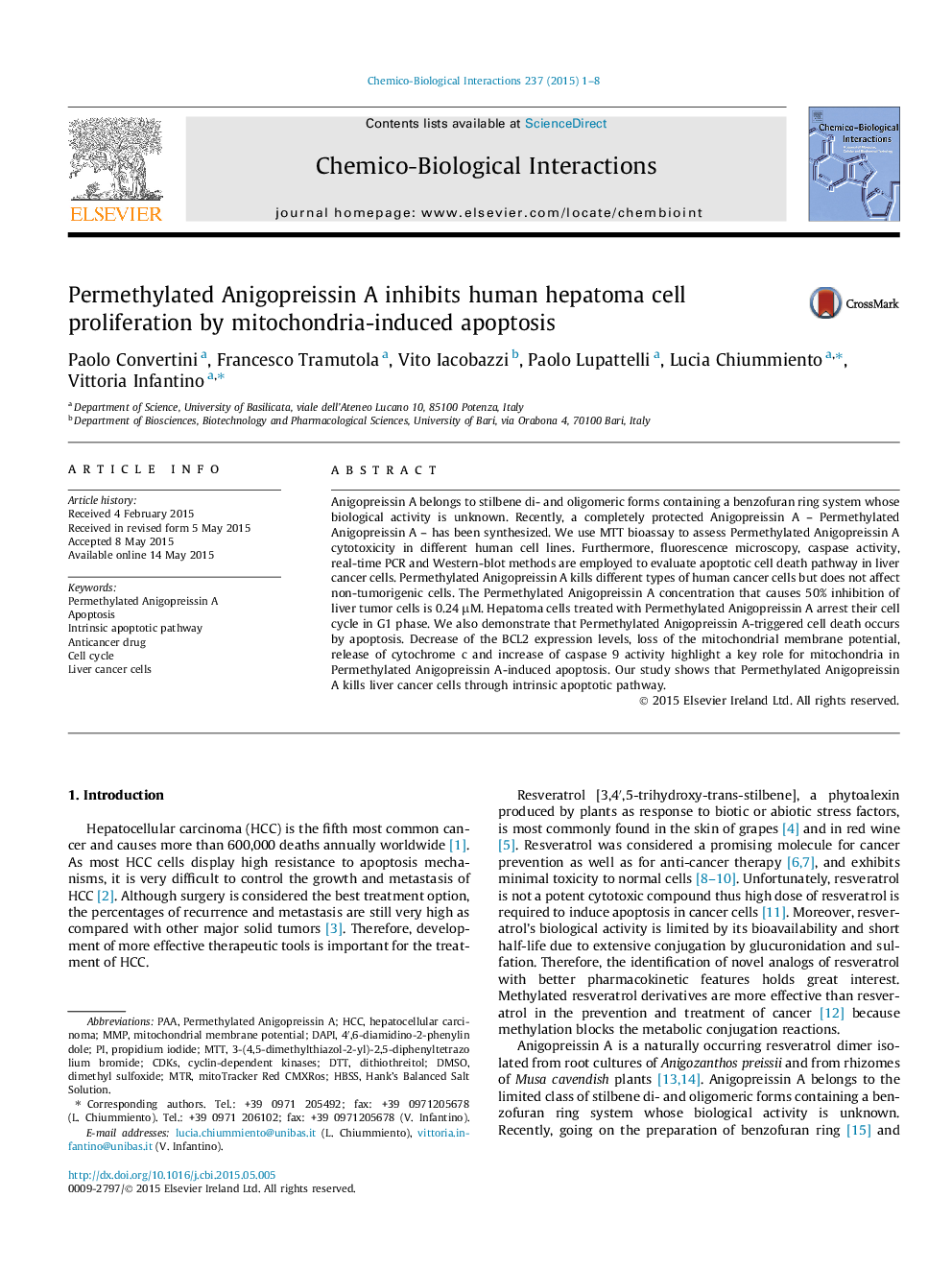| Article ID | Journal | Published Year | Pages | File Type |
|---|---|---|---|---|
| 5847746 | Chemico-Biological Interactions | 2015 | 8 Pages |
â¢Permethylated Anigopreissin A displays a selective cytotoxic effect.â¢Hepatoma cell lines are more responsive than other cells to Permethylated Anigopreissin A.â¢Permethylated Anigopreissin A arrests cell cycle in G1 phase.â¢Intrinsic apoptotic pathway is activated by Permethylated Anigopreissin A.
Anigopreissin A belongs to stilbene di- and oligomeric forms containing a benzofuran ring system whose biological activity is unknown. Recently, a completely protected Anigopreissin A - Permethylated Anigopreissin A - has been synthesized. We use MTT bioassay to assess Permethylated Anigopreissin A cytotoxicity in different human cell lines. Furthermore, fluorescence microscopy, caspase activity, real-time PCR and Western-blot methods are employed to evaluate apoptotic cell death pathway in liver cancer cells. Permethylated Anigopreissin A kills different types of human cancer cells but does not affect non-tumorigenic cells. The Permethylated Anigopreissin A concentration that causes 50% inhibition of liver tumor cells is 0.24 μM. Hepatoma cells treated with Permethylated Anigopreissin A arrest their cell cycle in G1 phase. We also demonstrate that Permethylated Anigopreissin A-triggered cell death occurs by apoptosis. Decrease of the BCL2 expression levels, loss of the mitochondrial membrane potential, release of cytochrome c and increase of caspase 9 activity highlight a key role for mitochondria in Permethylated Anigopreissin A-induced apoptosis. Our study shows that Permethylated Anigopreissin A kills liver cancer cells through intrinsic apoptotic pathway.
